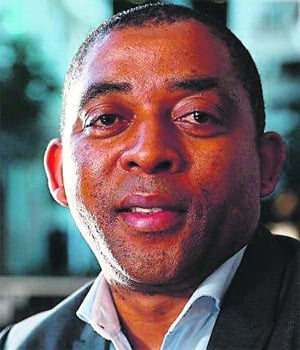Cape Town – The lack of capacity and skills at executive level at SAA is a risk to the airline’s three-year turnaround plan, said CEO Vuyani Jarana.
Jarana and SAA board chair JB Magwaza briefed Parliament's Standing Committee on Finance on the airline’s quarterly report on Tuesday.
Jarana said that a legacy of problems were inherited by the airline's new board and these issues provide a challenge to its recovery path, which will require something “extraordinary”. Among the challenges is the airline’s debt burden and the questions over the capacity of its leadership.
“SAA had a serious problem of governance,” said Magwaza. “There was a lack of cohesion at board level that undermined the implementation of strategy.” Magwaza pointed out that the board would often get involved in the day-to-day operations of the airline, which was welcomed by the executives.
“There is a serious and dangerous lack of capacity at the executive and leadership level at SAA. There has been for quite some time now leadership instability at the exco level,” said Magwaza. This has delayed the implementation of strategies, primarily due to the lack of capacity, he said.
He added that there was a lack of critical skills in the organisation, no commercial skills, or supply chain management skills which put SAA on a route to disaster. “The strategies were good but lacked the understanding of the commercial nature of the business. We were running routes with our metal but we weren’t dropping gross profit.”
Other issues related to the organisational culture. “We have people who feel that someone owes them a living. And there is no real understanding of the state of the airline,” said Magwaza.
There was a culture that if there was trouble at the airline, “big daddy” would be able to come and bail them out. Forensic reports revealed that people did not act in the best interests of the organisation.
He assured that the issue was being dealt with, he would not speak on the suspended SAA executives or why they have been suspended. “There is going to be a proper process to take place where they will be found guilty or not-guilty. We do not want to pre-empt the outcome of the process,” he said.
Solid business
Both Jarana and Magwaza expressed views that there is a business case for SAA. “SAA is a solid business. The right things being done, the right capital structure being there. Tackling this and most other problems, this organisation has a good future going forward,” said Magwaza.
Magwaza added that the airline was heading on the route of profitability. “We have a good business but it needs hard work.”
He said that the turnaround strategy is a j-curve which needs to go down before it moves back up. “We will go down, there will be ‘trane’, it is going to be painful and expensive. We will put in a solid number of hours to turn it around.”
Magwaza said the airline has a “solid board” which fully understands the challenges, as does the chief executive. He pleaded for South Africans and the Deputy Minister of Finance Mondli Gungubele, who was also at the meeting, to give SAA more time.
This time will have turbulence and will come with negative publicity. He added that the negative publicity is taken seriously but will not tear away the board from doing what is right.
Negative sentiment
Jarana explained that it was difficult to attract top skills at the airline which is why the exco is populated with acting people. SAA needs to be rebased as an attractive employer, given its poor reputation in the public.
Interim executives have been appointed as the search for permanent employees continues. The task at SAA requires people who have “seen the movie” and do not still need to learn. Jarana said that appointments should be done well, and done once, to avoid restructuring in the future.
Negative sentiment has also been the reason behind the airline’s underperformance in the past year. Passenger numbers were lost due to negative sentiment about the airline spread in the media, Jarana pointed out. “If negative sentiment continues it will undermine our ability to win in the market … Every time South Africans say publicly that SAA is dying it has a drag effect. It takes us three to six months before we can convince agents that SAA is still standing and can operate.”
Jarana said that the three-year recovery plan is expected to see SAA yielding profits by 2021. But for now the biggest risk is how quickly to get skills at SAA to implement its strategy.
The AGM is to be held on March 29, Jarana said. The financial report will be tabled in Parliament in April.
* Sign up to Fin24's top news in your inbox: SUBSCRIBE TO FIN24 NEWSLETTER
Follow Fin24 on Twitter, Facebook, Google+ and Pinterest. 24.com encourages commentary submitted via MyNews24. Contributions of 200 words or more will be considered for publication.




















